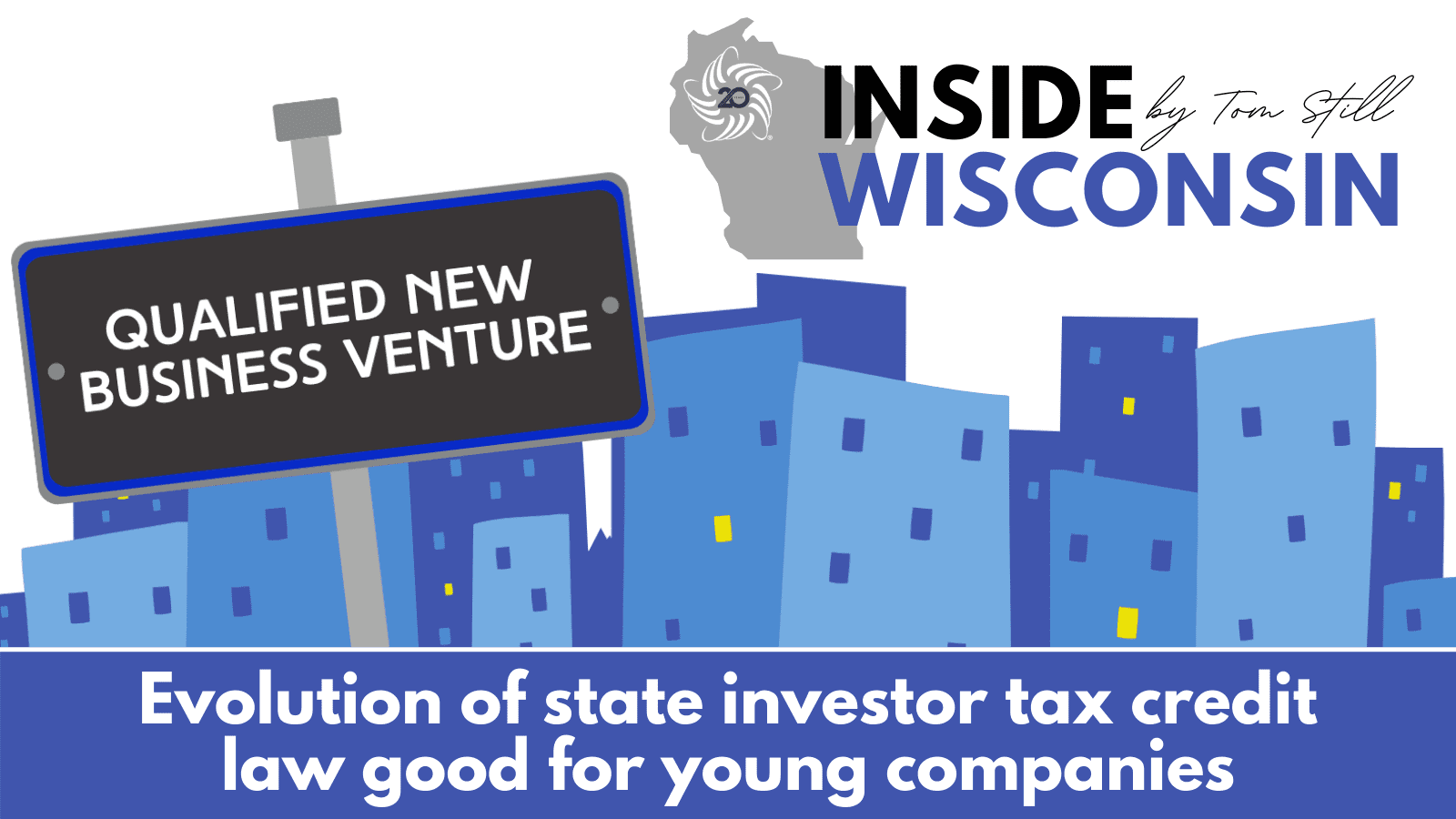By Tom Still
 MADISON, Wis. – As they pitched to investors during the recent Wisconsin Early Stage Symposium, many entrepreneurs made a point of saying their companies are “QNBV-certified,” which is an acronym for one of Wisconsin’s oldest and most successful tax credit programs.
MADISON, Wis. – As they pitched to investors during the recent Wisconsin Early Stage Symposium, many entrepreneurs made a point of saying their companies are “QNBV-certified,” which is an acronym for one of Wisconsin’s oldest and most successful tax credit programs.
That program is called the Qualified New Business Venture law, which took effect in early 2005 with bipartisan support, was carefully amended several times over the years and has contributed mightily to the state’s early stage economy. Two bills in the hopper in the Wisconsin Legislature stand to continue that progress.
More on those bills later. First, here’s some background on QNBV and what it has accomplished over time.
Wisconsin’s QNBV law has spurred company development and job creation by providing 25% state tax credits to early stage investors who risk private angel and venture capital dollars in emerging firms. The law comes with caveats, such age and size of the company, its innovative nature and where most of its workers are located.
Since 2005, hundreds of companies have been certified through the QNBV program – about 260 of which are active today and not “timed out” due to the 10-year limit.
From the program’s inception in 2005 through 2020, tax credits authorized and granted over time equal more than $164 million, which has generated four times that amount – about $660 million – in private investment in young Wisconsin companies. The program is now administered through the Wisconsin Economic Development Corporation and the credits are issued through the Department of Revenue.
These are private dollars that might otherwise stay on the sidelines and not get involved in the early-stage economy if not for the availability of Wisconsin’s tax credit law. That model has been followed in other states, as well.
The proof of the program’s success lies in the growing list of investments and successful companies. Total angel and venture capital investments in Wisconsin exceeded $483 million in 2020, an all-time high despite the onset of the COVID-19 pandemic. With less than two months remaining in 2021, total angel and venture investments in Wisconsin companies are already exceeding last year.
Despite the year-on-year growth of investments, Wisconsin is still lagging its neighbors. Since 2005, the program’s first year, angel and venture capital investments have grown from a reported $5.4 million to today’s running total of more than $3 billion. Those young companies have created thousands of jobs while adding value and tax revenue to the Wisconsin economy.
Also called Act 255 because of its statutory linkage at the time, QNBV was co-authored by the late Sen. Ted Kanavas, R-Brookfield, and then-Commerce Secretary Cory Nettles, with the support of the Wisconsin Technology Council, then-Financial Institutions Secretary Lorrie Keating Heinemann and many others who believed Wisconsin needed to step up its early stage game.
Amendments over time have adapted to changes in the economy. Here are the two latest bills being circulated:
- The first would allow emerging companies that are already QNBV-certified to expand to other states through merger or acquisition with another company, provided its headquarters remains in Wisconsin, it continues to increase the number of employees in Wisconsin, and it satisfies other requirements about the percentage of Wisconsin workers over time. This bill (LRB-5239/1) recognizes that for a tech-based company to succeed, it must often add talent and resources in markets much bigger than Wisconsin.
- The second would encourage angel investors from outside Wisconsin to invest in state companies to sell or otherwise transfer the 25% tax credit. That ability to sell or transfer credits is already allowed for QNVB’s “early stage” credits, but not for the angel side. This bill (LRB-5248/1) would simply bring the full law into alignment.
Lead sponsors thus far are Sen. Dan Feyen, R-Fond du Lac; Rep. Shannon Zimmerman, R-River Falls; and Rep. Mike Kuglitsch, R-New Berlin. Feyen and Kuglitsch are co-chairs of the Legislature’s informal Tech Caucus. The Tech Council broadly outlined both ideas in past policy papers, including as recently as January 2021. The Wisconsin Startup Coalition has offered similar recommendations.
The QNBV law has made it possible for investors to take a chance on young, innovative companies while protecting taxpayers. The latest proposals stand to do more of the same.
Still is president of the Wisconsin Technology Council. He can be reached at tstill@wisconsintechnologycouncil.com.


